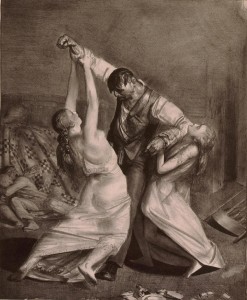Loving An Alcoholic
 It’s difficult to love an active alcoholic without becoming a part of his or her illness. The only hope you have for a better relationship at some point in the future is to become aware of the problem and work your way out of the limited relationship you currently have. This will inevitably simplify the alcoholic’s difficulties and may help him or her move closer to recovery.
It’s difficult to love an active alcoholic without becoming a part of his or her illness. The only hope you have for a better relationship at some point in the future is to become aware of the problem and work your way out of the limited relationship you currently have. This will inevitably simplify the alcoholic’s difficulties and may help him or her move closer to recovery.
As a lover, if you’re in there trying to change your alcoholic lover or hiding the self-destructiveness of his or her condition, you’re blocking the path to recovery with what will inevitably be ill-fated support.
What is needed is for your lover to fully feel and appreciate the consequences of his or her addiction to alcohol. Once the fact that life is unmanageable becomes visible, the next step is a personal choice to live better without alcohol.
The sad fact is you can’t make the decision for him or her and you can’t push you lover into recovery. This personal decision and the subsequent request for real help can only come from the alcoholic.
What you can do is take care of yourself even if your lover is not taking care of him or herself. Most of the lovers and spouses of alcoholics I’ve treated over the years eventually became aware of their need to rehabilitate their alcoholic lovers and their extreme self-sacrifice.
For some there is also an underlying avoidance of intimacy and vulnerability by keeping a dysfunctional partner they have to take care of. Once an enabling or codependent lover (that’s the person who hides and protects the alcoholic) realizes the limitations of this arrangement, the next step is to contend with the alternative of cooperating with a sober lover in recovery.
This is where things get really interesting. What this means is you have to change along with your alcoholic lover.
You have to let go of your need to be in control and/or rehabilitate your lover. Here’s the opportunity, when you give up control you are now in the position to risk being vulnerable and allowing your needs for love to be more directly felt by you and known to your lover.
It’s difficult but well worth the effort. You go from being a frustrated enabling caretaker who doesn’t take very good care of his or her emotional life, to a more balanced person with love to give and needs for love.
These therapeutic changes usually get started when you refuse to remain in a codependent relationship with your alcoholic lover. When you start asking for something better.
Comments? Welcome. Dr. Tom Jordan
